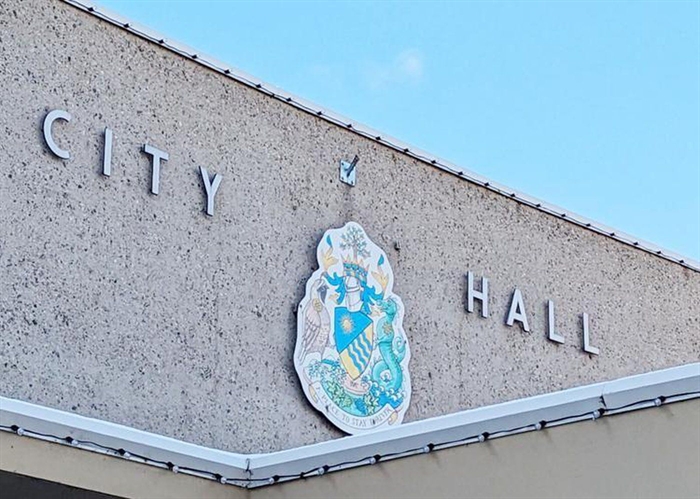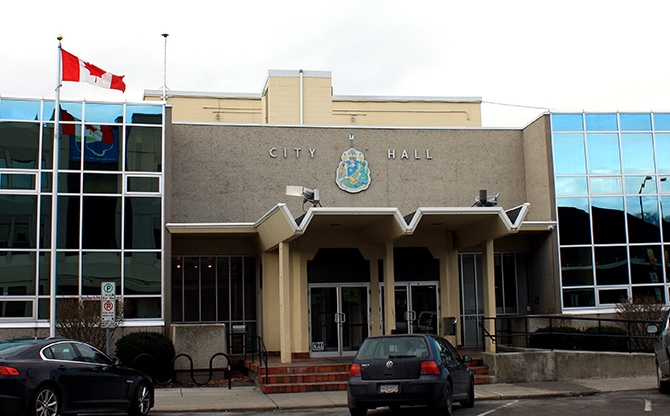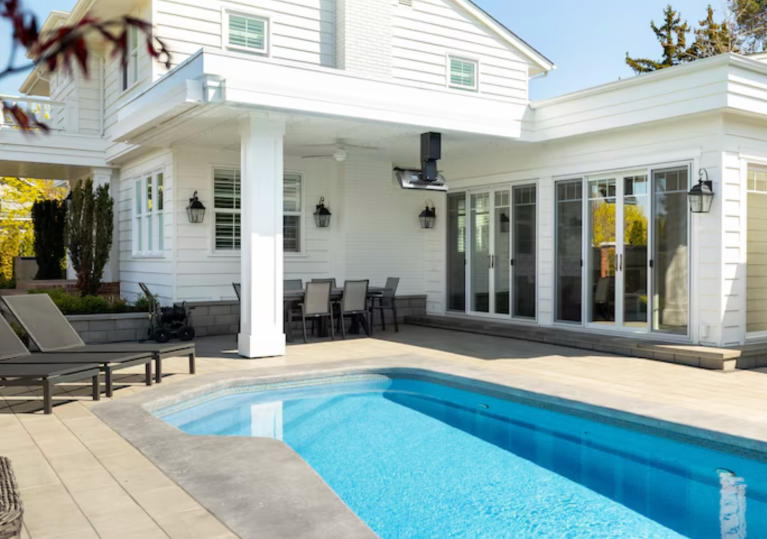

Penticton council votes to delay decision on tiny homes project
Penticton city council made it clear they want a “made-in-Penticton” proposal from the provincial government before moving forward with a project that could see up to 50 tiny homes built in the city’s industrial park for homeless residents.
The province’s Heart and Hearth program would bring as many as 50 tiny homes to Penticton and provide residents with 24/7 access to services and programs designed to help them transition to permanent housing. The project is expected to last three to five years.
Following a one-hour presentation from senior staff, the majority of council voiced their opposition to approving a temporary use permit for the tiny homes project without receiving more information from the province and greater input from local residents.
At issue for most was access to an on-site supervised injection site.
Several others felt the provincial government was forcing them into a corner to make a quick decision and threatening to hold back funding for the project if they didn’t accept their offer at Tuesday’s meeting.
Council voted 5-1 in favour of a motion from Coun. Campbell Watt to delay a final vote on the tiny homes proposal until a council meeting set for Tuesday, Dec. 2. Isaac Gilbert was the lone dissenting vote.
Mayor Julius Bloomfield warned council any delay would make the province’s offer “dead in the water because the funding may be pulled … do we approve the concept in principal? That’s the question.”
Watt responded stating he wasn’t going to allow the provincial government to dictate how a municipal council reacts to a proposal, especially one that has garnered so much attention and opposition as the tiny homes proposal in Penticton.
“If the Province isn’t willing to be a partner with us and if delaying this by two or three weeks is the difference on whether Penticton is worth giving funding to or not, that’s a whole different set of questions,” Watt said. “I’m certainly skeptical of needing to appease the province before our community as a criteria.”
Bloomfield pointed out senior staff has been advocating for assistance to help the city’s growing homeless situation for months through the Heart and Hearth project.
Watt said he was more than willing to ask questions. He didn’t appreciate “being held captive to the province and their demands, I’m not here to represent them, I’m here to represent my community, our community.”
Watt then asked if the tiny homes were opened and things were not working well, what would happen.
Coun. Jason Reynen said he remains skeptical of the province’s offer as other projects to house the homeless in Penticton “haven’t been as well run as stated, so unfortunately again, my faith is with the people and not with the province.”
Coun. Shannon Stewart said the province’s Heart and Hearth program has value and merit; however, residents of Penticton deserve to be well -informed before council makes a final decision and she’s not convinced that’s taken place.
“We don’t have the right to impose a decision on them (citizens) as many are diametrically opposed to it,” Stewart said.
Watt said he found it difficult to understand why the Province’s rules to attain support and funding include a provision that allows drug consumption in these projects, instead of allowing for “dry” projects where alcohol and drug use are prohibited.
“I would suspect it’s an overall theme, the biggest sticking point for our community is going to be the dry concept,” Watt said. “Having an additional inhalant or injection site, whatever it happens to be, is just adding to the paranoia.
“I would like us to true partners … the province, the community and the individuals benefiting from these tiny homes are all partners, meaning that the province understands our unique municipality has unique wants and needs. If that is dry, then it’s dry.”
He questioned why the province would reject a deal with a municipality based on criteria they insist on, when a municipality like Penticton doesn’t approve of having injection sites.
Watt is convinced that there will be enough unhoused residents who are willing to commit to being and remaining clean and sober, and who would want to live in a dry compound. He believes the province should respect this.
Coun. Isaac Gilbert didn’t agree, noting a staff report indicates more than 90 per cent of Penticton’s homeless population of close to 200 residents suffer from addiction issues and only a handful are clean and sober.
“Five per cent are not using substances and that means there’s only 10 people that would be qualified under a dry facility,” Gilbert said.
Gilbert asked council to consider eliminating the Heart and Hearth project and advocating for other programs and funding to tackle Penticton’s homeless crisis.
“We need to make that decision to end Heart and Hearth and look for an alternative,” Gilbert said, adding most residents wouldn’t support using Penticton taxpayer dollars to open a dry-only facility as so few homeless would not qualify to live there.
Watt said any proposal for a tiny homes project would focus on homeless residents committed to not using any substances inside their tiny homes.
“I’m hoping that 10 people becomes 12, becomes 20, then 30,” he said. “I’m hoping that the people … are clean and want to be continuously clean are the ones in need who want support … what I want to put up is actual support, not band-aids. Support would be for those people that want to be clean and stay clean. Let’s provide that.”
Bloomfield said the “vast majority” of residents he’s spoken with recognize “we need to something,” to alleviate the homeless crisis in Penticton.
Because residents are paying rent at the tiny homes, they are allowed to do as they please inside their homes, like any other citizen, the mayor said.
Bloomfield said he has spoken with paramedics who prefer supervised consumption sites because there are staff on-site who know what drugs have been used, in what amounts, and when — all within a controlled environment.
There is no perfect location for a facility like this in a small city like Penticton, said Bloomfield, but city staff looked at 60 other options before choosing this location, including property owned by the school district.
If this Heart and Hearth proposal is rejected by council on Dec. 2, the controversial Fairview encampment will remain “as there’s nowhere for them to go.”
Penticton’s overdose death rate has declined dramatically by more than 47 per cent, which is well above the rest of the province, Bloomfield said.
“I believe what we’re doing is right, it’s effective,” he said.
Not moving forward with this project should not be leveraged to what’s happening at the Fairview encampment, said Watt.
“I’m not going to move forward being bullied or leveraged or pressured,” Watt said while holding a stack of letters from residents. “My responsibility as a councillor in Penticton is to represent the community of Penticton.”
Watt’s motion didn’t specifically call for a dry facility, but it did include a request for the province to work with council to develop a project that has strong community support — “to adopt a Penticton version of Heart and Hearth,” said Watt.
— This article was originally published by the Penticton Herald
News from © iNFOnews.ca, . All rights reserved.
This material may not be published, broadcast, rewritten or redistributed.

Join the Conversation!
Want to share your thoughts, add context, or connect with others in your community?
You must be logged in to post a comment.









